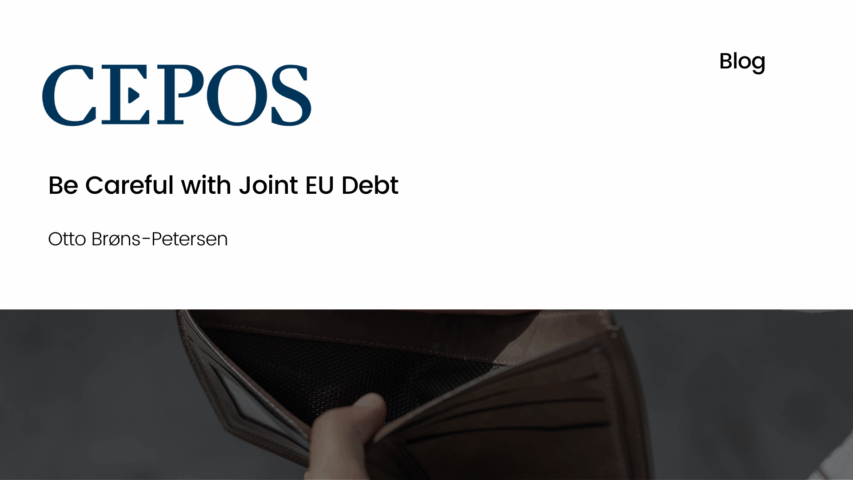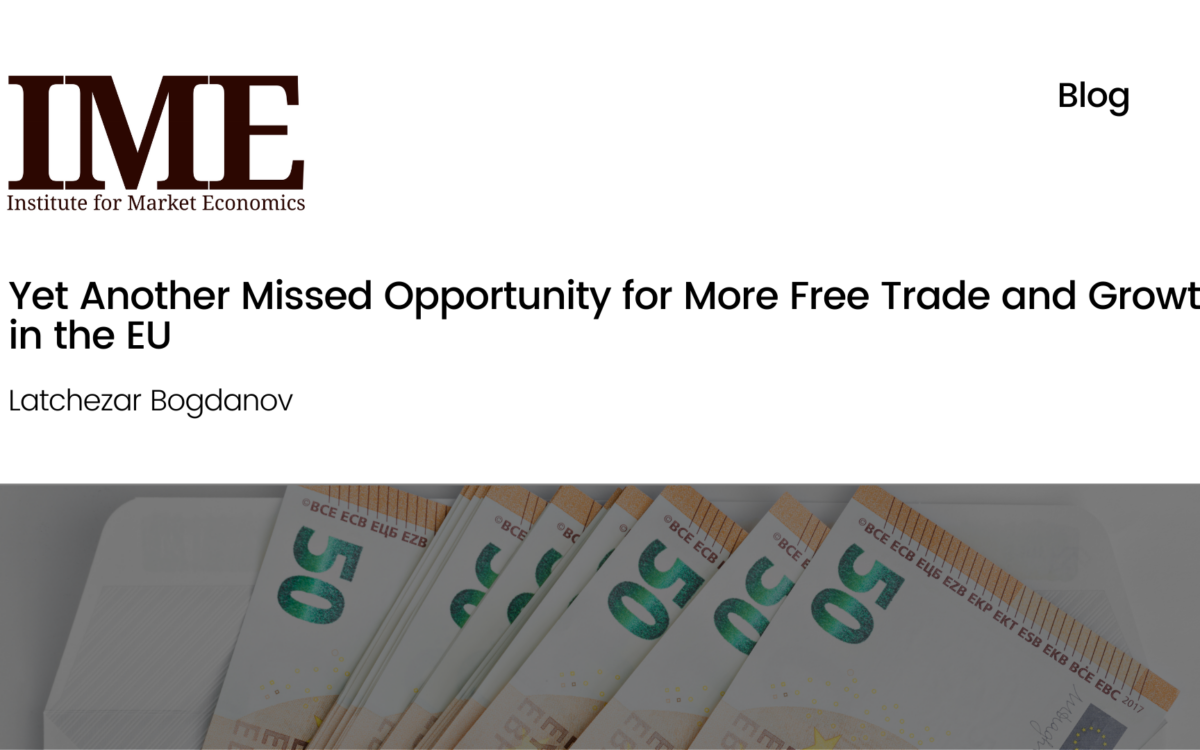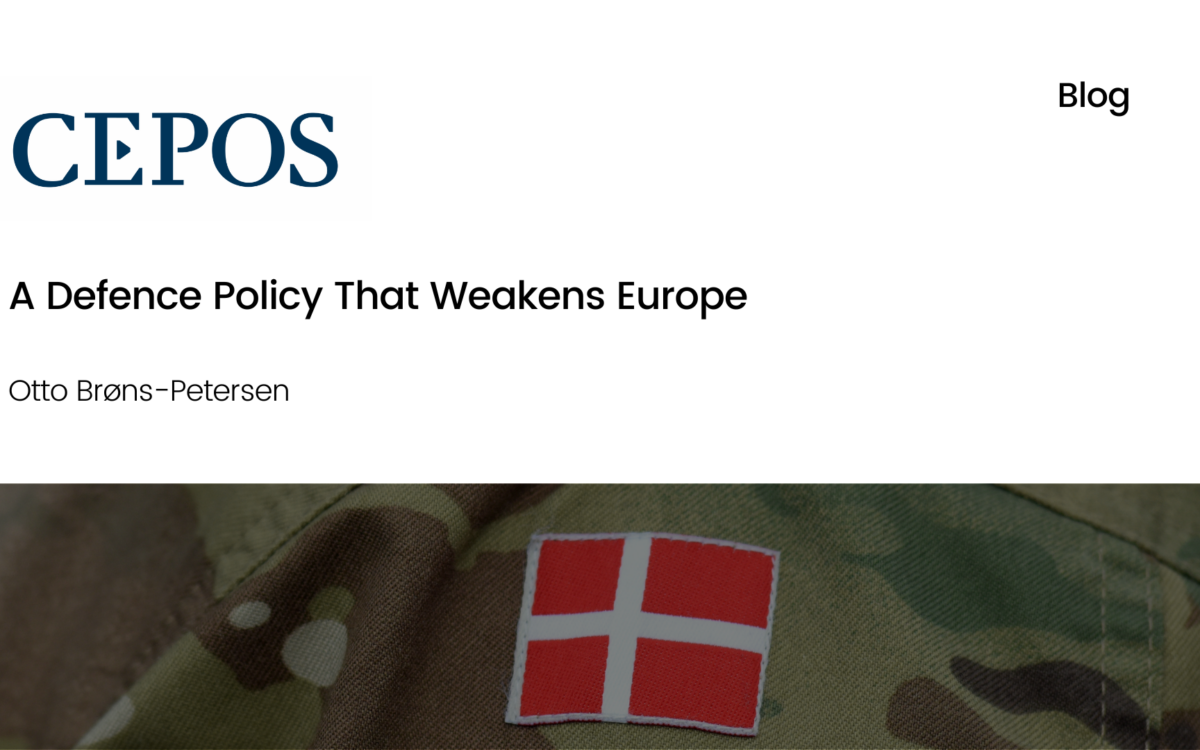Be Careful with Joint EU Debt

Be Careful with Joint EU Debt
Otto Brøns-Petersen // 14 November 2025
Denmark has taken over the EU presidency, and it is fitting that the government is keen to achieve results.
However, we must be careful that our eagerness to achieve common goals does not lead us to abandon Denmark’s sensible position on economic responsibility.
In European debates, joint EU debt is often highlighted as the only solution if all member states are to succeed in their military rearmament efforts.
However, the consequence is that the bill may end up being paid by Danish wage earners, even though they have already made a significant contribution through the reforms that have created our strong public finances.
When a Danish bricklayer works longer hours, when an electrician remains in the labour market for several more years, or when a teacher works more days, it is a direct contribution to Denmark’s healthy economy.
It is therefore unreasonable to expect them to also pay for the consequences of other countries’ irresponsibility.
According to the European Commission, 14 member states exceeded the treaty’s debt limit of 60% of GDP in 2023. Further, the rule specifying a maximum budget deficit of 3% has been repeatedly ignored.
Reforms generate profits
In other words, several EU countries do not have their budgets under control. Joint debt creation will therefore undermine the creditworthiness of countries with healthy public finances, such as Denmark. Among other things, this could lead to higher interest rates when the state needs to borrow money.
In addition, there will likely be a redistribution among countries, both when the debt must be repaid and when the loan amount must be distributed. Both of these measures will most likely be at Denmark’s expense.
In Denmark, we have our papers in order – a historically large budgetary margin of over DKK 100 billion in 2025 and the fifth lowest gross public debt in the EU.
Sound public finances do not just happen by accident. The fact that the Danish economy is in a much better position today than it was at the end of the 1970s is partly due to successive governments implementing a series of major reforms, including those of the pension system.
It is the Danish people who have had to give up their day off on Great Prayer Day and accept staying in the labour market longer as they live longer.
The best scenario would be for all European countries to implement reforms to ensure their long-term economic sustainability and to finance the military build-up they require.
However, this task appears to be challenging for many countries. That is why the EU has once again suspended its fiscal rules, allowing countries to take on debt to finance defence spending.
The argument for joint debt is that some countries have such low credit ratings that they will have to pay sky-high interest rates on additional loans.
This makes defence investments more expensive, both for individual countries and at the EU level. Joint debt can help make armaments cheaper.
Sky-high debt
However, a European defence system based on sky-high debt and redistribution from north to south may be fragile and meet with resistance in countries such as Denmark, which will have to foot the bill.
Danish employees and businesses are ready to take responsibility – they have demonstrated this repeatedly. However, a well-functioning EU requires everyone to contribute. Otherwise, we risk making the most responsible countries pay for the least responsible ones, which would result in the loss of crucial support for the EU community.
One can always debate whether it is wise to enter into joint debt at all – and we do not necessarily have to agree on this. But if, as part of a compromise, we do go down that path, there should be a precondition that countries with high debt implement responsible reforms and genuinely commit to participating in the financing. Until then, the Danish presidency must be cautious about initiating a joint debt project.
This blog post was first published by CEPOS in Danish.
Otto Brøns-Petersen is the Head of Analysis at CEPOS
EPICENTER publications and contributions from our member think tanks are designed to promote the discussion of economic issues and the role of markets in solving economic and social problems. As with all EPICENTER publications, the views expressed here are those of the author and not EPICENTER or its member think tanks (which have no corporate view).
Blog post tags
- budget surplus Denmark
- Danish EU presidency
- debt redistribution
- defence spending
- Denmark economy
- EU fiscal rules
- EU joint debt
- European Commission debt limits
- fiscal responsibility
- fiscal-taxation
- Great Prayer Day reform
- joint borrowing risks
- military rearmament
- north-south transfer
- pension reform Denmark
- public finance reforms



